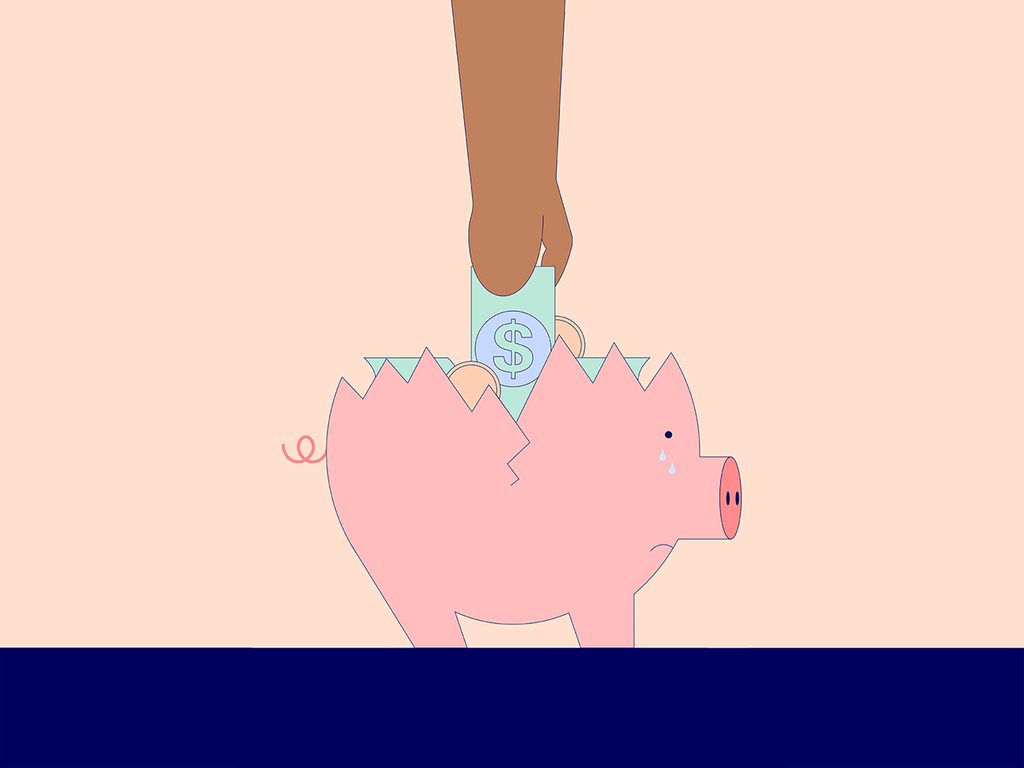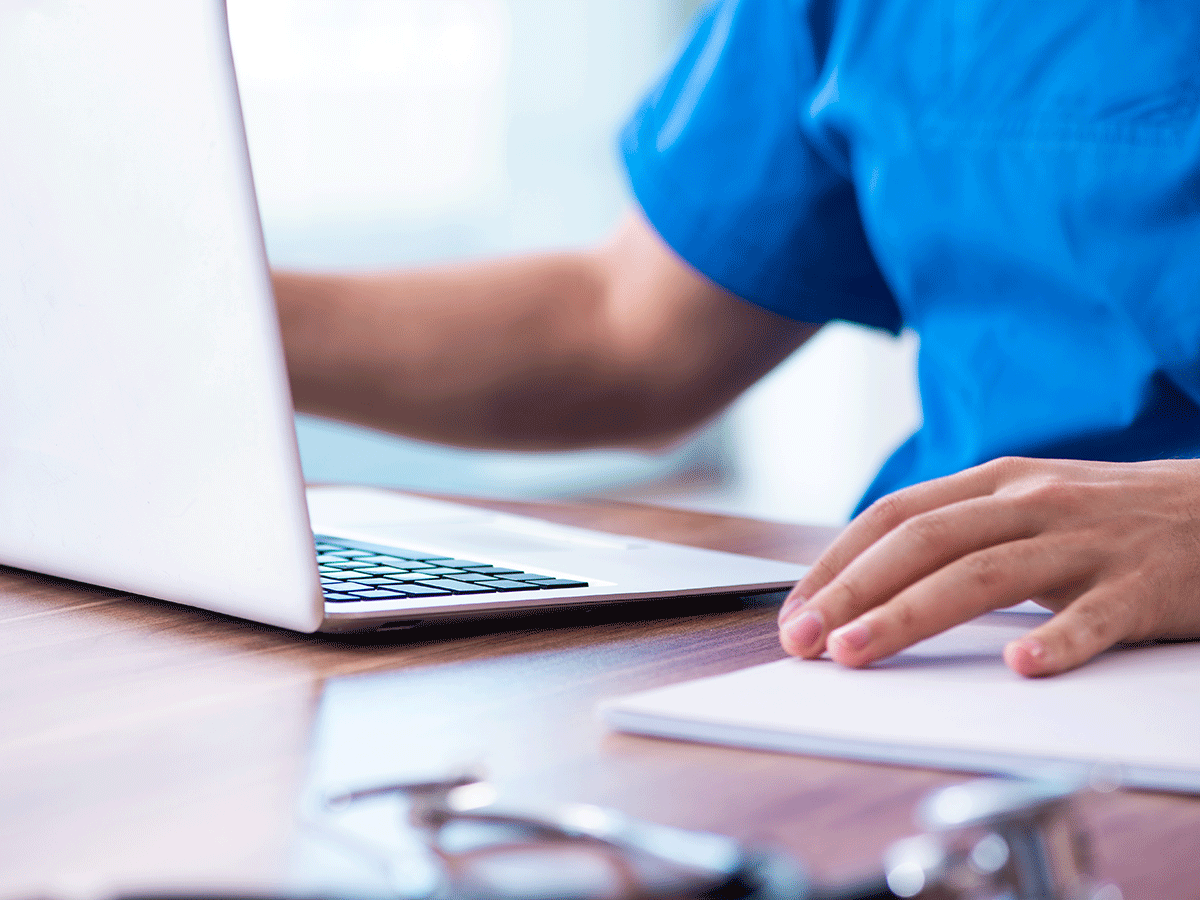I Had $1.11 in Savings. Here’s How I Improved My Relationship With Money

A financial therapist explains financial guilt, and how to work through it.
At the beginning of the year, I had no emergency fund. In fact, my entire savings came to precisely $1.11.
Given that I’m a full-time personal finance journalist who advocates for financial literacy and wellness, I felt ashamed. Even though I’ve been transparent about my lack of savings, I felt a deep fear that something would happen, I wouldn’t have the funds to cover it and someone would say to me, “Shouldn’t you know better?” wanted that cushion, so I set out to save $3,000 by the end of 2020, by allocating $125 every other week to an emergency fund.
In March, a new wake-up call came in the form of a global pandemic. By April, 5.5 million Canadians had lost their jobs or were working less than usual, and a record-breaking 6.73 million people applied for the Canada Emergency Response Benefit.
The more unemployment news I read, the more guilt I felt that I had not prioritized saving the expert-recommended six months of expenses. Because of my work, I didn’t have the option to just turn away from the news. So for several months, I read about terrifying labour statistics, wondering if I was next. The pressure to save never felt so urgent, and even though I was in a position to sock money away, my guilt deepened every day.
In May, I had to dip into my new savings fund to cover an unexpected expense, and I felt even worse. But is that not the purpose of savings? Why did I feel just as guilty about using my savings as I did about not having any in the first place?
I reached out to Lindsay Bryan-Podvin, a financial therapist and founder of Mind Money Balance, to help me unpack these feelings. In her business, she uses financial psychology to help people think and talk about money without shame, and she focuses on more than just budgeting and bookkeeping.
When you’re experiencing financial hardship or feelings of guilt, Bryan-Podvin says, the last thing you need is someone saying, “I told you so.” Yet so much personal finance advice centres on that natural human instinct to blame ourself.
(Related: 3 Smart Ways to Manage Your Money Better)
“There are a lot of messages out there in the personal finance space that are shameful and blameful,” says Bryan-Podvin. “They’re rooted in [the idea that] you should have known better or you should have done better. And those are the exact opposite of the things you need.”
I told Bryan-Podvin that I was experiencing financial guilt. “You’re not alone,” she says. “Most of my clients are saying things like, ‘I should have created an emergency fund.’” But when I described my feelings, she identified something else going on as well — a concept she termed “financial survivor guilt.”
“It’s when a person doesn’t experience financial hardship or loss when others around them have,” she explains, adding that it has come up with clients who, despite having their finances impacted by the pandemic, know others have been hit harder. Both kinds of guilt can negatively affect your emotional well-being, which can trickle down to your financial well-being.
If you’re struggling with guilt, Bryan-Podvin recommends first trying to practise gratitude — being thankful for what you do have. “That helps with mental resilience and strength,” she says.
And if survivor guilt is what’s most at play, recognize your agency. “Realistically, if you give up your job, it wouldn’t make things better for others. Practise saying, ‘Because I have this job, I am able to not only take care of myself and my family, but also give back to my community.’” Then think about how you can give back to others. Just remember to do so in a responsible way; Bryan-Podvin cautions that some people go into overdrive, donating time and money to make up for feeling guilty that they still have a job, and end up being stretched too thin themselves. Keep a good balance — think of it as practising “financial self-care,” she says.
(Related: 5 Money Tricks That Can Help You Save $1,000 a Month)
Keisha Blair, an economist, founder of the Institute on Holistic Wealth, and author of Holistic Wealth: 32 Life Lessons to Help You Find Purpose, Prosperity, and Happiness, is also familiar with financial survivor guilt.
For her, the guilt doesn’t exclusively coincide with negative spending habits or behaviours.
“Sometimes, even if the spending is going to add value to your life, you can still feel some measure of guilt,” says Blair. She talks about how guilt played a role in the financial decisions she had to make when her husband died. “I kept thinking to myself, Would he have made this spending decision? Would he have approved if I spent the money this way or spent it that way?”
One of the things Blair suggests is embracing a financial identity that’s tied to your personal values and beliefs. This will boost your confidence in how you spend, save, pay down debt or invest.
“I think, for many of us, the guilt comes in because we have no clue what we’re doing,” says Blair. “Having our own financial identity minimizes guilt because then we can be confident when we say, ‘No, I’m not going to spend money there — I’m spending money here.’”
Given that this pandemic is a once-in-a-generation experience, if you can’t afford to put away as much as you used to in savings, don’t feel guilty. “I think we’re putting way too much pressure on ourselves,” says Blair. “To minimize the guilt and stress right now, prioritize survival expenses like the roof over your head, electricity bills and food.”
And if you’re seeking help with your personal finances, it can really pay to find someone who takes a shame-free approach. Saving something, no matter how little, is always better than nothing. And seeing that number start to grow can be a great motivator.




